 W
WHikmat Abu Zayd was an Egyptian politician and academic. She became the first female cabinet minister in Egypt in 1962. Her tenure as minister of social affairs set a precedent. Afterwards, it became common for women to head that ministry. An avowed advocate of Nasserism, Abu Zayd has had a major impact on Egyptian law and policy in the areas of social affairs and insurance.
 W
WLászló Ede Almásy de Zsadány et Törökszentmiklós was a Hungarian aristocrat, motorist, desert explorer, aviator, Scout-leader and sportsman who served as the basis for the protagonist in both Michael Ondaatje's novel The English Patient (1992) and the movie adaptation of the same name (1996).
 W
WAntonio Francisco Xavier Alvares was initially a priest in the Roman Catholic Church in Goa. He joined the Malankara Orthodox Syrian Church and was elevated to Metropolitan of Goa, Ceylon and Greater India in the Malankara Orthodox Syrian Church.
 W
WSir Thomas Arundell of Wardour Castle in Wiltshire was a Cornish administrator and alleged conspirator.
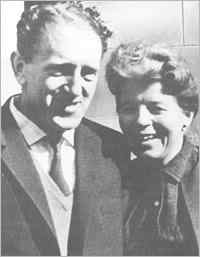 W
WLionel "Rusty" Bernstein was a Jewish South African anti-apartheid activist and political prisoner. He played a key role in political organizations such as the South African Communist Party (SACP) and the African National Congress (ANC). He helped form the Congress of Democrats to bolster white participation in the ANC, and he brought its allies together to establish a Congress of the People, working closely with Nelson Mandela.
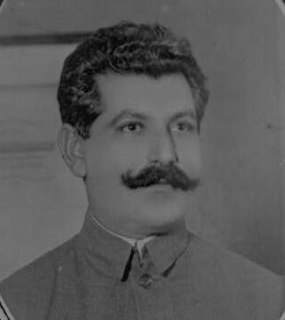 W
WLucio Blanco was a Mexican military officer, noteworthy for his participation in the Mexican Revolution of 1910 to 1920.
 W
WWilliam H. Blizzard was an American union organizer, a commander of the miners' army during the 1921 Battle of Blair Mountain, and president of District 17 of the United Mine Workers (UMWA). Blizzard is most remembered for his role in the Battle of Blair Mountain, leading the miners against the forces of Logan County sheriff Don Chafin. For his leadership role in the battle, Blizzard was charged with treason, but was acquitted at his trial on these charges. From that time forward, he remained an important leader within the UMWA and organized labor.
 W
WNykyta Budka was a clergyman of the Ukrainian Greek Catholic Church who lived and worked in Austria-Hungary, Canada, Poland, and the Soviet Union. In Canada, he is noted as the first bishop of the Ukrainian Catholic Church in Canada, and was the first Eastern Catholic bishop with full jurisdiction ever appointed in the New World.
 W
WAaron Burr Jr. was an American politician and lawyer. He served as the third vice president of the United States during President Thomas Jefferson's first term from 1801 to 1805. Burr's legacy is defined by his famous personal conflict with Alexander Hamilton that culminated in Burr killing Hamilton in the famous Burr–Hamilton duel in 1804.
 W
WPierre Jacques Étienne Cambronne, later Pierre, 1st Viscount Cambronne, was a general of the First French Empire. A main strategist of the French Revolutionary Wars and Napoleonic Wars, he was wounded at the Battle of Waterloo.
 W
WRaffaello Carboni was an Italian writer, composer and interpreter who wrote a book on the Eureka Stockade which he witnessed while living in Australia. After periods of travelling, he returned to Italy where he died in Rome.
 W
WElizabeth Cellier, flourished 1668–1688, London, England, was a notable Catholic midwife in seventeenth-century England. She stood trial for treason in 1680 for her alleged part in the "Meal-Tub Plot" against the future James II but was acquitted. She later became a pamphleteer and made attempts to advance the field of midwifery.
 W
WCheney Clow (1734–1788) was a loyalist from Delaware Colony during the American Revolution who staged a rebellion against the colonial government that was advocating separation from Great Britain.
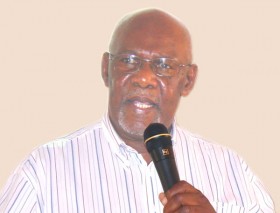 W
WDumiso Dabengwa was a Zimbabwean politician. He served as the head of Zimbabwe People's Revolutionary Army (ZIPRA) intelligence during the Rhodesian Bush War.
 W
WPaul Déroulède was a French author and politician, one of the founders of the nationalist League of Patriots.
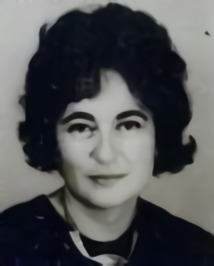 W
WHeloise Ruth First was a South African anti-apartheid activist and scholar. She was assassinated in Mozambique, where she was working in exile, by a parcel bomb built by South African police.
 W
WAdolf Fischhof was a Hungarian-Austrian writer and politician of Jewish descent.
 W
WJohann Silvio Gesell was a German-Argentine merchant, theoretical economist, social activist, Georgist, anarchist, libertarian socialist, and founder of Freiwirtschaft. In 1900 he founded the magazine Geld-und Bodenreform, but it soon closed for financial reasons. During one of his stays in Argentina, where he lived in a vegetarian commune, Gesell started the magazine Der Physiokrat together with Georg Blumenthal. In 1914, it closed due to censorship.
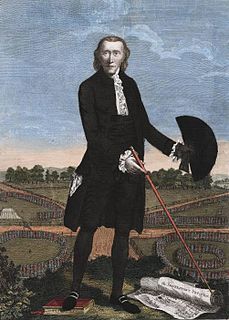 W
WLord George Gordon was a British politician best known for lending his name to the Gordon Riots of 1780.
 W
WPieter de Groot was a Dutch regent and diplomat during the First Stadtholderless Period of the Dutch Republic. He led the Dutch delegation that vainly tried to negotiate the Dutch capitulation to king Louis XIV of France during the Year of Disaster, 1672.
 W
WThomas Hardy was a British shoemaker who was an early Radical, and the founder, first Secretary, and Treasurer of the London Corresponding Society.
 W
WJohn Horne Tooke, known as John Horne until 1782 when he added the surname of his friend William Tooke to his own, was an English clergyman, politician, and philologist.
 W
WMiloš Jakeš was a Czech communist politician. He was General Secretary of the Communist Party of Czechoslovakia from 1987 until 1989. He resigned from his position in late November 1989, amid the Velvet Revolution.
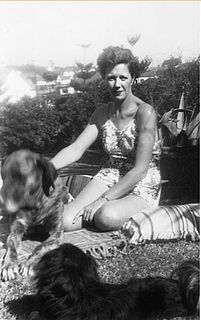 W
WHelen Beatrice Joseph was a South African anti-apartheid activist. Born in Sussex, England, Helen graduated with a degree in English from the University of London in 1927 and then departed for India, where she taught for three years at Mahbubia School for girls in Hyderabad. In about 1930 she left India for England via South Africa. However, she settled in Durban, where she met and married a dentist, Billie Joseph, whom she later divorced.
 W
WAhmed Mohamed Kathrada, sometimes known by the nickname "Kathy", was a South African politician and anti-apartheid activist.
 W
WAdmiral Augustus Keppel, 1st Viscount Keppel, PC was a Royal Navy officer and politician who sat in the House of Commons from 1755 to 1782. He saw action in command of various ships, including the fourth-rate Maidstone, during the War of the Austrian Succession. He went on to serve as Commodore on the North American Station and then Commander-in-Chief, Jamaica Station during the Seven Years' War. After that he served as Senior Naval Lord and then Commander-in-Chief of the Channel Fleet.
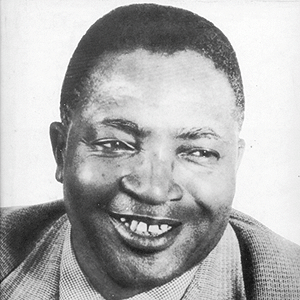 W
WMoses Mauane Kotane was a South African politician and activist. Kotane was secretary general of the South African Communist Party from 1939 until his death in 1978.
 W
WCount Jan Stefan Krukowiecki was a Polish general and chairman of the Polish National Government during the November Uprising and general during Napoleonic Wars fighting in the troops of Napoleon.
 W
WLangalibalele (isiHlubi: meaning 'Sunnyday', also known as Mthethwa, Mdingi, was king of the amaHlubi, a Bantu tribe in what is the modern-day province of KwaZulu-Natal, South Africa.
 W
WJozef Lenárt was a Slovak politician who was Prime Minister of Czechoslovakia from 1963 to 1968.
 W
WChristopher Love was a Welsh Presbyterian preacher and activist during the English Civil War. In 1651, he was executed by the English government for plotting with the exiled Stuart court. The Puritan faction in England considered Love to be a martyr and hero.
 W
WErich Friedrich Wilhelm Ludendorff was a German general, politician and military theorist. He achieved fame during World War I for his central role in the German victories at Liège and Tannenberg in 1914. Following his appointment as First Quartermaster-general of the Imperial Army's Great General Staff in 1916, he became the chief policymaker in a de facto military dictatorship that dominated Germany for the rest of the war. After Germany's defeat, he contributed significantly to the Nazis' rise to power.
 W
WInkosi Albert John Luthuli, also known by his Zulu name Mvumbi, was a South African teacher, activist, Nobel Peace Prize winner, and politician. In 1952, Luthuli was elected president of the African National Congress (ANC), at the time an umbrella organisation leading opposition to the white minority government in South Africa. Luthuli ended up serving until his accidental death. He was awarded the 1960 Nobel Peace Prize for his role in the non-violent struggle against apartheid. He was the first person of African heritage to be awarded the Nobel Peace Prize. Luthuli was a lay preacher of the United Congregational Church of Southern Africa (UCCSA) based at its Groutville Congregational Church in Stanger, KwaZulu-Natal, where Luthuli was laid to rest upon his death in 1967.
 W
WClarence Mlami Makwetu was a South African anti-apartheid activist, politician, and leader of the Pan Africanist Congress of Azania (PAC) during the historic 1994 elections.
 W
WNelson Rolihlahla Mandela was a South African anti-apartheid revolutionary, statesman and philanthropist who served as President of South Africa from 1994 to 1999. He was the country's first black head of state and the first elected in a fully representative democratic election. His government focused on dismantling the legacy of apartheid by tackling institutionalised racism and fostering racial reconciliation. Ideologically an African nationalist and socialist, he served as the president of the African National Congress (ANC) party from 1991 to 1997.
Zachariah Keodirelang "ZK" Matthews was a prominent black academic in South Africa, lecturing at South African Native College, where many future leaders of the African continent were among his students.
 W
WHenricus Antonius "Han" van Meegeren was a Dutch painter and portraitist, considered one of the most ingenious art forgers of the 20th century. Van Meegeren became a national hero after World War II when it was revealed that he had sold a forged painting to Reichsmarschall Hermann Göring during the Nazi occupation of the Netherlands.
 W
WJohannes "Joe" Modise was a South African political figure. He helped to found Umkhonto we Sizwe, the military wing of the African National Congress, and was its longest serving Commander in Chief, deputised at different points in time by Joe Slovo and Chris Hani. Modise headed MK for a 25-year period, from 1965 to 1990. He served as South Africa's first black Minister of Defence from 1994 to 1999 and led the formation of the post-independence defence force.
 W
WJohn Mordaunt, 1st Viscount Mordaunt was an English royalist.
 W
WFrancesco Morosini was the Doge of Venice from 1688 to 1694, at the height of the Great Turkish War. He was a member of a famous noble Venetian family which produced several Doges and generals. He "dressed always in red from top to toe and never went into action without his cat beside him."
 W
WAlexander Konstantinovich Nikitin is a Russian former submarine officer and nuclear safety inspector turned environmentalist. In 1996 he was accused of espionage for revealing the perils of decaying nuclear submarines, and in 2000 he became the first Russian to be completely acquitted of a charge of treason in the Soviet or post-Soviet era.
 W
WSimon Tseko Nkoli was an anti-apartheid, gay rights and AIDS activist in South Africa.
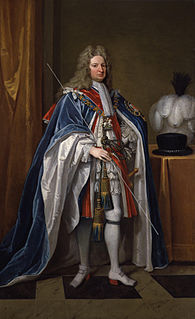 W
WRobert Harley, 1st Earl of Oxford and Earl Mortimer, KG PC FRS was an English and later British statesman of the late Stuart and early Georgian periods. He began his career as a Whig, before defecting to a new Tory Ministry. He was raised to the peerage of Great Britain as an earl in 1711. Between 1711 and 1714 he served as Lord High Treasurer, effectively Queen Anne's chief minister. He has been called a Prime Minister, although it is generally accepted that the de facto first minister to be a prime minister was Robert Walpole in 1721.
 W
WEdward Oxford was the first of seven people who tried to assassinate Queen Victoria. After Oxford was arrested and charged with treason, a jury found that Oxford was not guilty by reason of insanity and he was detained at Her Majesty's pleasure in the State Criminal Lunatic Asylum and later, in Broadmoor Hospital. Eventually given conditional release for transportation to a British colony, he lived out the remainder of his life in Australia.
 W
WClaro Mayo Recto Jr. was a Filipino statesman, jurist, poet and one of the foremost statesmen of his generation. He is remembered for his nationalism, for "the impact of his patriotic convictions on modern political thought", and has been seen in the same class as Dr. Jose Rizal, Sen. Jose W. Diokno, and Sen. Lorenzo Tañada.
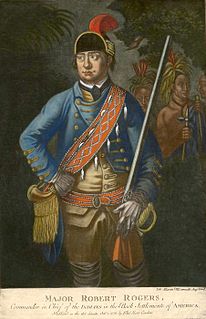 W
WRobert Rogers was an American colonial frontiersman. Rogers served in the British army during both the French and Indian War and the American Revolution. During the French and Indian War, Rogers raised and commanded the famous Rogers' Rangers, trained for raiding and close combat behind enemy lines.
 W
WSaid Halim Pasha was an Ottoman statesman of Egyptian origin who served as Grand Vizier of the Ottoman Empire from 1913 to 1917. He was one of the perpetrators of the Armenian genocide, and was later assassinated by Arshavir Shirakian as part of Operation Nemesis, a retribution campaign to kill perpetrators of the Armenian genocide.
 W
WAnthony Ashley Cooper, 1st Earl of Shaftesbury PC was a prominent English politician during the Interregnum and the reign of King Charles II. A founder of the Whig party, he was also the patron of John Locke.
 W
WWalter Max Ulyate Sisulu was a South African anti-apartheid activist and member of the African National Congress (ANC), serving at times as Secretary-General and Deputy President of the organization. He was incarcerated at Robben Island, where he served more than 25 years' imprisonment.
 W
WJoe Slovo was a South African politician, and an opponent of the apartheid system. A Marxist-Leninist, he was a long-time leader and theorist in the South African Communist Party (SACP), a leading member of the African National Congress (ANC), and a commander of the ANC's military wing Umkhonto we Sizwe (MK).
 W
WJohn Thelwall was a radical British orator, writer, political reformer, journalist, poet, elocutionist and speech therapist.
 W
WIgnatius Timothy Trebitsch-Lincoln was a Hungarian adventurer and convicted con artist. Of Jewish descent, he spent parts of his life as a Protestant missionary, Anglican priest, British Member of Parliament for Darlington, German right-wing politician and spy, Nazi collaborator and Buddhist abbot in China.
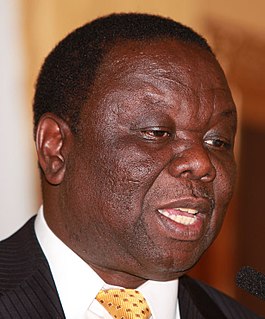 W
WMorgan Richard Tsvangirai was a Zimbabwean politician who was Prime Minister of Zimbabwe from 2009 to 2013. He was President of the Movement for Democratic Change, and later the Movement for Democratic Change – Tsvangirai (MDC–T), and a key figure in the opposition to former President Robert Mugabe.
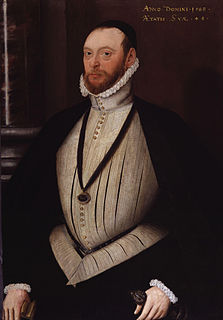 W
WThomas Wentworth, 2nd Baron Wentworth was the eldest son of Thomas Wentworth, 1st Baron Wentworth and Margaret Fortescue. He studied at St John's College, Cambridge.
 W
WRobert William Kalanihiapo Wilcox, nicknamed the Iron Duke of Hawaiʻi, was a Native Hawaiian whose father was an American and whose mother was Hawaiian. A revolutionary soldier and politician, he led uprisings against both the government of the Hawaiian Kingdom under King Kalākaua and the Republic of Hawaii under Sanford Dole, what are now known as the Wilcox rebellions. He was later elected the first delegate to the United States Congress for the Territory of Hawaii.